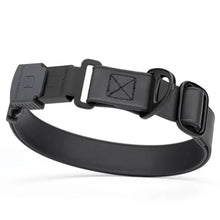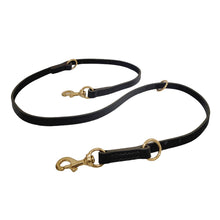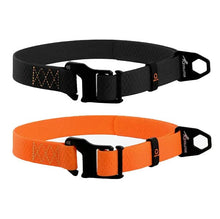The Pros and Cons of Spaying or Neutering Your Dog

Spaying or neutering your dog is a personal decision that should be made based on your individual circumstances. While there are many benefits to these procedures, there are also some potential drawbacks that should be considered. In this article, we will explore the pros and cons of spaying or neutering your dog in more detail, so that you can make an informed decision for your furry friend.
Pros of Spaying or Neutering Your Dog
Prevents Unwanted Litters
One of the most significant benefits of spaying or neutering your dog is that it prevents unwanted litters. Female dogs in heat can attract male dogs from miles away, leading to unexpected breeding and puppies. This can be avoided by spaying female dogs or neutering male dogs, reducing the number of unwanted animals that end up in animal shelters.
Reduces Risk of Certain Health Problems
Spaying or neutering your dog can reduce the risk of certain health problems. Female dogs that are spayed before their first heat have a lower risk of developing mammary gland tumors. In fact, spaying before the first heat can reduce the risk of mammary tumors by 90%. Additionally, spaying your dog eliminates the risk of uterine infections, which can be life-threatening.

Male dogs that are neutered have a reduced risk of developing testicular cancer and prostate problems. Testicular cancer is a common cancer in unneutered male dogs and can be very aggressive. Prostate problems, such as enlargement or cancer, can also be a significant health issue in male dogs.
Decreases Aggressive Behavior
Neutering male dogs can decrease aggressive behavior. Unneutered male dogs are more likely to exhibit aggressive behavior, including biting and fighting with other dogs. Neutering can also reduce territorial marking behavior, such as urinating on objects in the house or yard.
By reducing aggressive behavior, neutering can make your dog easier to manage and less likely to cause problems with other animals or people. It can also make your dog less likely to be the victim of aggression from other dogs.

Decreases Roaming Behavior
Neutered male dogs are less likely to roam. Unneutered male dogs have a strong desire to mate, leading them to escape from their homes and roam the streets. This can lead to dangerous situations, such as getting hit by a car or getting into fights with other dogs. Neutering can reduce this behavior, making it safer for your dog to stay at home.
Cons of Spaying or Neutering Your Dog
Potential for Weight Gain
Spaying or neutering your dog can lead to weight gain. After the procedure, your dog's metabolism slows down, and they may have a decreased appetite. If their diet is not adjusted accordingly, they may gain weight, which can lead to obesity and other health problems.
However, weight gain can be managed with a proper diet and exercise routine. It's important to monitor your dog's weight after the procedure and adjust their diet and exercise as needed to keep them at a healthy weight.

Risk of Surgical Complications
Spaying or neutering your dog is a surgical procedure that carries some risks. While it is a routine procedure, there is still a small risk of complications, such as bleeding, infection, or reactions to anesthesia.
However, the risk of complications is very low, and the benefits of spaying or neutering your dog usually outweigh the risks. Your veterinarian will discuss the risks and benefits of the procedure with you before making a decision.
Possible Behavior Changes
Spaying or neutering your dog can lead to behavior changes. Some dogs may become less active or lose interest in playing after the procedure. Others may become more affectionate or clingy. These changes are usually temporary and will go away as your dog adjusts to their new hormone levels.

It's important to monitor your dog's behavior after the procedure and address any concerns with your veterinarian. They may recommend behavioral training or other interventions to help your dog adjust to their new hormone levels.
Irreversible Procedure
Spaying or neutering your dog is an irreversible procedure. Once the procedure is done, your dog will not be able to reproduce. If you decide to breed your dog in the future, you will not be able to do so after the procedure.
It's important to consider this before making a decision to spay or neuter your dog. If you are unsure about whether you want to breed your dog in the future, you may want to consider waiting before making a decision.

Spaying or neutering your dog is a personal decision that should be made based on your individual circumstances. While there are some potential drawbacks to these procedures, the benefits usually outweigh the risks. Spaying or neutering your dog can prevent unwanted litters, reduce the risk of certain health problems, decrease aggressive and roaming behavior, and more.
If you do decide to spay or neuter your dog, it's important to follow your veterinarian's instructions for post-operative care. This may include limiting your dog's activity, monitoring their incision site for signs of infection, and administering any prescribed medications.
Overall, spaying or neutering your dog can have many benefits, including preventing unwanted litters, reducing the risk of certain health problems, and decreasing behavior issues. However, it's important to consider the potential drawbacks and make an informed decision with the guidance of your veterinarian. By doing so, you can ensure that your furry friend stays happy and healthy for years to come.

We hope that you found this article helpful. As always, please feel free to share with your friends.
You may also like: 5 Critical Questions To Ask Your Vet Before Your Dog Goes Under Anesthesia






















